124 start with L start with L
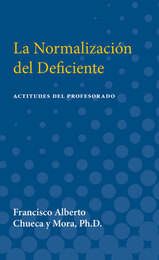

The American adult education system has become an alternative for school dropouts, with some state welfare policies requiring teen mothers and women without high school diplomas to participate in adult education programs to receive aid. Currently, low-income women of color are more likely to be enrolled in the lowest levels of adult basic education. Very little has been published about women's experiences in these mandatory programs and whether the programs reproduce the conditions that forced women to drop out in the first place.
Lorna Rivera bridges the gap with this important study, the product of ten years' active ethnographic research with formerly homeless women who participated in adult literacy education classes before and after welfare reform. She draws on rich interviews with organizers and participants in the Adult Learners Program at Project Hope, a women's shelter and community development organization in Boston's Dudley neighborhood, one of the poorest in the city.
Analyzing the web of ideological contradictions regarding "work first" welfare reform policies, Rivera argues that poverty is produced and reproduced when women with low literacy skills are pushed into welfare-to-work programs and denied education. She examines how various discourses about individual choice and self-sufficiency shape the purposes of literacy, how low-income women express a sense of personal responsibility for being poor, and how neoliberal ideologies and practices compromise the goals of critical literacy programs. Throughout this study, the voices and experiences of formerly homeless women challenge cultural stereotypes about poor women, showing in personal and structural terms how social and economic forces shape and restrict opportunities for low-income women of color.
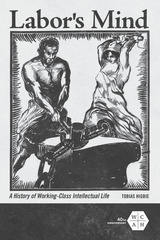

On virtue in education and argumentation.
Plato, the great philosopher of Athens, was born in 427 BC. In early manhood an admirer of Socrates, he later founded the famous school of philosophy in the grove Academus. Much else recorded of his life is uncertain; that he left Athens for a time after Socrates’ execution is probable; that later he went to Cyrene, Egypt, and Sicily is possible; that he was wealthy is likely; that he was critical of “advanced” democracy is obvious. He lived to be 80 years old. Linguistic tests including those of computer science still try to establish the order of his extant philosophical dialogues, written in splendid prose and revealing Socrates’ mind fused with Plato’s thought.
In Laches, Charmides, and Lysis, Socrates and others discuss separate ethical conceptions. Protagoras, Ion, and Meno discuss whether righteousness can be taught. In Gorgias, Socrates is estranged from his city’s thought, and his fate is impending. The Apology (not a dialogue), Crito, Euthyphro, and the unforgettable Phaedo relate the trial and death of Socrates and propound the immortality of the soul. In the famous Symposium and Phaedrus, written when Socrates was still alive, we find the origin and meaning of love. Cratylus discusses the nature of language. The great masterpiece in ten books, the Republic, concerns righteousness (and involves education, equality of the sexes, the structure of society, and abolition of slavery). Of the six so-called dialectical dialogues Euthydemus deals with philosophy; metaphysical Parmenides is about general concepts and absolute being; Theaetetus reasons about the theory of knowledge. Of its sequels, Sophist deals with not-being; Politicus with good and bad statesmanship and governments; Philebus with what is good. The Timaeus seeks the origin of the visible universe out of abstract geometrical elements. The unfinished Critias treats of lost Atlantis. Unfinished also is Plato’s last work, Laws, a critical discussion of principles of law which Plato thought the Greeks might accept.
The Loeb Classical Library edition of Plato is in twelve volumes.
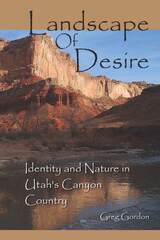
Landscape of Desire powerfully documents and celebrates a place and the evolutions that occur when human beings are intimately connected to their surroundings. Greg Gordon accomplishes this with a tapestry of writing that interweaves land use history, natural history, experiential education, and personal reflection. He tracks the geomorphology of southern Utah as well as the creatures and plants his student group encounters, the history lessons (planned and unplanned), the trials and joys of gathering so many individuals into a cohesive will, and his own personal epiphanies, restraints, insights, and disillusionments.
Landscape of Desire examines the plight of the western landscape. It discusses a wide range of issues, including mining, grazing, dams, recreation, wilderness, and land management. Since recreation has replaced extraction industries as the primary use of wilderness, especially in southern Utah, Gordon addresses its impactful qualities. He overviews the history of the conflict between preservation and development and places these issues in a cultural context. The text is presented in a narrative format, following the individuals of one field course Gordon lead that explored Muddy Creek and the Dirty Devil River from Interstate 70 to Lake Powell. Though each chapter focuses on the geologic formation the group is traveling through, the plants, animals, ecology, and human impacts are all tightly woven into the narrative. Not only does the land affect the members of the field course, but their attitudes and insights affect the land.
In Landscape of Desire Gordon achieves a vision of wholeness of this popular and contested region of Utah that centers around the implications of being human and also stewards of the wild.
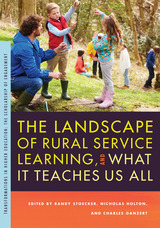
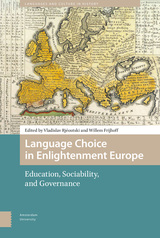
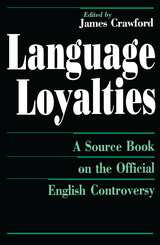
Supporters argue that English has always been our common language—a means of resolving conflicts in a nation of diverse racial, ethnic, and religious groups, and an essential tool of social mobility and cultural integration. Opponents charge that the amendment is unnecessary and that it threatens civil rights, educational opportunities, and free speech, wrapping racist biases in a cloak of patriotism.
Language Loyalties: A Source Book on the Official English Controversy provides a balanced, comprehensive guide to this complex and often confusing debate. It is an essential handbook and reference for advocates, educators, policymakers, jurists, scholars, and citizens who seek to join this debate fully informed. Addressing the issues involved in developing America's first planned national language policy, James Crawford has expertly collected and introduced more than eighty-five source documents and articles.
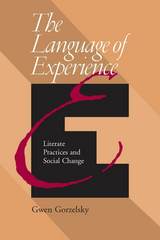
The Language of Experience examines the relationship between literacy and change--both personal and social. Gorzelsky studies three cases, two historical and one contemporary, that speak to key issues on the national education agenda.
"Struggle" is a community literacy program for urban teens and parents. It encourages them to reflect on, articulate, and revise their life goals and design and implement strategies for reaching them. To provide historical context for this and other contemporary efforts in using literacy to promote social change, Gorzelsky analyzes two radical religious and political movements of the English Civil Wars and the 1930s unionizing movement in the Pittsburgh region. Charting the similarities and differences in the function of literate practices in each case shows how different situations and contexts can foster very different outcomes.
Gorzelsky's analytic frame is drawn from Gestalt theory, which emphasizes the holistic nature of perception, communication, and learning. Through it she views how discourse and language structures interact with experience and how this interaction changes awareness and perception.
The book is methodologically innovative in its integration of a macro-social view of cultural, social, and discursive structures with a micro-social view of the potential for change embodied in them. Through her analysis and in her use of the voices of the people she studies, Gorzelsky offers a tool for analyzing individual instances of literate practices and their potential for fostering change.
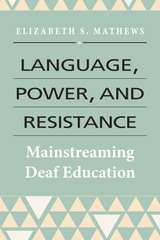
The research upon which this book is based examined the implications that mainstreaming has for the tensions between the hegemonic medical model of deafness and the social model of Deafness. This volume explores how different types of power are used in the deaf education system to establish, maintain, and also resist medical views of deafness. Mathews frames this discussion as one of power relations across parents, children, and professionals working within the system. She looks at how various forms of power are used to influence decisions, to resist decisions, and to shape the structure and delivery of deaf education. The author’s findings are a significant contribution to the debates on inclusive education for DHH students and will resonate in myriad social and geographic contexts.
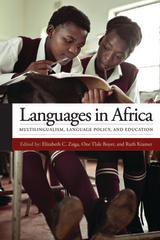
People in many African communities live within a series of concentric circles when it comes to language. In a small group, a speaker uses an often unwritten and endangered mother tongue that is rarely used in school. A national indigenous language—written, widespread, sometimes used in school—surrounds it. An international language like French or English, a vestige of colonialism, carries prestige, is used in higher education, and promises mobility—and yet it will not be well known by its users.
The essays in Languages in Africa explore the layers of African multilingualism as they affect language policy and education. Through case studies ranging across the continent, the contributors consider multilingualism in the classroom as well as in domains ranging from music and film to politics and figurative language. The contributors report on the widespread devaluing and even death of indigenous languages. They also investigate how poor teacher training leads to language-related failures in education. At the same time, they demonstrate that education in a mother tongue can work, linguists can use their expertise to provoke changes in language policies, and linguistic creativity thrives in these multilingual communities.
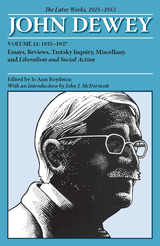
This volume includes ninety-two items from 1935, 1936, and 1937, including Dewey’s 1935 Page-Barbour Lectures at the University of Virginia, published as Liberalism and Social Action.
In essay after essay Dewey analyzed, criticized, and reevaluated liberalism. When his controversial Liberalism and Social Action appeared, asking whether it was still possible to be a liberal, Horace M. Kallen wrote that Dewey “restates in the language and under the conditions of his times what Jefferson’s Declaration of Independence affirmed in the language and under the conditions of his.”
The diverse nature of the writings belies their underlying unity: some are technical philosophy; other philosophical articles shade into social and political themes; social and political issues permeate the educational articles, which in turn involve Dewey’s philosophical ideas.
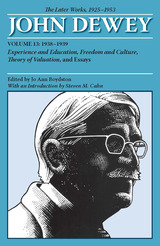
This volume includes all Dewey’s writings for 1938 except for Logic: The Theory of Inquiry (Volume 12 of The Later Works), as well as his 1939 Freedom and Culture, Theory of Valuation, and two items from Intelligence in the Modern World.
Freedom and Culture presents, as Steven M. Cahn points out, “the essence of his philosophical position: a commitment to a free society, critical intelligence, and the education required for their advance.”
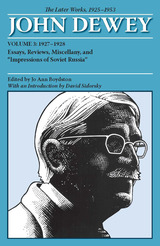
All of Dewey’s writings for 1927 and 1928 with the exception of The Public and Its Problems, which appears in Volume 2, A Modern Language Association’s Committee on Scholarly Editions textual edition.
These essays are, as Sidorsky says in his Introduction, “framed, in great measure, by those two poles of his philosophical interest: looking backward, in a sense, to the defense of naturalistic metaphysics and moving forward to the justification and to the implications for practice of an empirical theory.”
Dewey’s five essays on education are evidence of his continued interest in that field. Among them is the frequently quoted “Why I Am a Member of the Teachers Union,” which is still used by the American Federation of Teachers in its recruiting efforts. Other highlights of this volume include the famous exchange between George Santayana and Dewey on Experience and Nature; an impassioned condemnation of the miscarriage of justice Dewey saw in the Sacco-Vanzetti trial; and a series of six articles on the Soviet Union based on Dewey’s trip to that country in 1928.
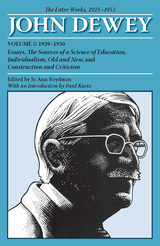
With the exception of The Quest for Certainty (Volume 4) this fifth volume brings together Dewey’s writings for the 1929–1930 period.
During this time Dewey published 4 books and 50 articles on philosophical, educational, political, and social issues. His philosophical essays include “What Humanism Means to Me” and “What I Believe,” both of which express Dewey’s faith in man’s potentialities and intelligence, and a lively Journal of Philosophy exchange with Ernest Nagel, William Ernest Hocking, C. I. Lewis, and F. J. E. Woodbridge. Educational writings include The Sources of a Science of Education. The contents of this volume reflect Dewey’s increasing involvement in social and political problems.
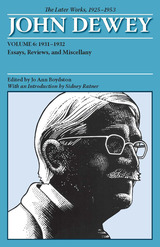
Except for Dewey’s and James H. Tufts’ 1932 Ethics (Volume 7 of The Later Works), this volume brings together Dewey’s writings for 1931–1932.
The Great Depression presented John Dewey and the American people with a series of economic, political, and social crises in 1931 and 1932 that are reflected in most of the 86 items in this volume, even in philosophical essays such as “Human Nature.” As Sidney Ratner points out in his Introduction, Dewey’s interest in international peace is featured in the writings in this volume.
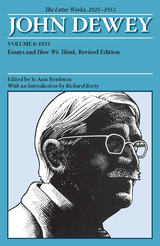
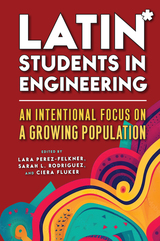
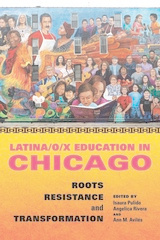
Insightful and enlightening, Latina/o/x Education in Chicago brings to light the ongoing struggle for educational equity in the Chicago Public Schools.
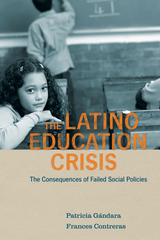
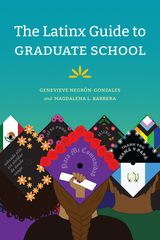
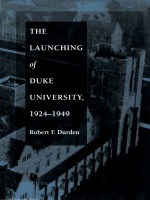
Made possible by a gift from James B. Duke, the wealthiest member of the family that had underwritten Trinity College since 1890, Duke University was organized with Few as president. Few's goal was to turn Duke into a world-class institution of higher education and these early years saw the development of much of what we know as Duke University today. Drawing on extensive archival material culled over a ten-year period, Durden discusses the building of the Medical Center, the rebuilding of the School of Law, the acquisition of the Duke Forest and development of the School of Forestry, the nurturing of the Divinity School, and the enrichment of the Graduate School of Arts and Sciences.
It was also during this period, as Durden details, that such treasures as the Sarah P. Duke Gardens were created, as well as some near treasures, as seen by the failed attempt to start an art museum. Although the story of the birth of this University belongs largely to William Preston Few, other people figure prominently and are discussed at length. Alice Baldwin, who led in the establishment of the Woman's College, emerges as a fascinating figure, as do William H. Wannamaker, James B. Duke, William Hanes Ackland, Robert L. Flowers, Justin Miller, and Wilburt Cornell Davision, among others.
Although impressive growth occurred in Duke's formative years, tensions also arose. The need to strike an institutional balance between the twin demands of teaching and research, of regional versus national status, combined with continual shortages of funds, created occasional obstacles. The problem of two sets of trustees, one for the university and another for the Duke Endowment, loomed largest of all. As Few himself said, during these early years Duke successfully embarked on a long journey, for it was not until after World War II that Duke University consolidated the growth begun in the inter-war years.
An important contribution to the history of Southern higher education as well as to Duke University, this book will be of great interest to historians, alumni, and friends of Duke University alike.

As educational and justice agencies increasingly turn to private subcontractors to deliver an array of services and growing numbers of young people are channeled into non-traditional educational settings and correctional institutions, it is imperative that educators and the general public understand how these institutions work and what problems their students and staffs encounter. This on-the-ground examination of the education within the juvenile justice system will open your eyes to how we educate some of our neediest children.
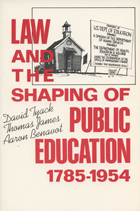
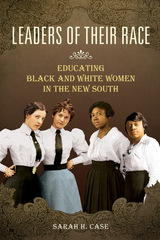

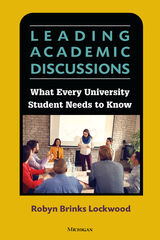
Although discussions are heavily reliant on words, they are also influenced and affected by pronunciation, stress, pitch, and tone. Because speakers need to both notice and use these cues to make their messages clear to other participants, the text addresses these factors as well. Additionally, non-verbal communication plays an essential role, so one chapter is devoted to it.
Throughout the text, reflection questions about leading discussions are provided for those who are or hope to be teaching assistants (TAs) and project leads/managers. Video analysis tasks are included to accompany the six mini discussion videos that are open and available at www.press.umich.edu/elt/compsite/leading.
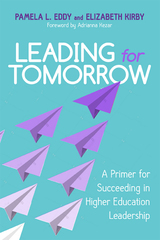
Using an engaging case study approach, Leading for Tomorrow provides readers with real-world examples that will help them reflect on their own management and communication styles. It also shows newly minted administrators how they can follow best practices while still developing a style of leadership that is authentic and uniquely their own.
The book’s case studies offer practical solutions for how to deal with emerging trends and persistent problems in the field of higher education, from decreasing state funding to political controversies on campus. Leading for Tomorrow gives readers the tools they need to get the best out of their team, manage conflicts, support student success, and instill a campus culture of innovation that will meet tomorrow’s challenges.
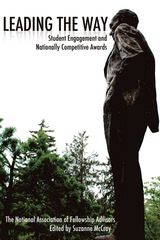
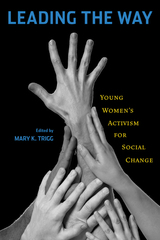
Bringing together graduates of a women's leadership certificate program at Rutgers University's Institute for Women's Leadership, these essays provide a contrasting picture to assumptions about the current death of feminism, the rise of selfishness and individualism, and the disaffected Millennium Generation. Reflecting on a critical juncture in their lives, the years during college and the beginning of careers or graduate studies, the contributors' voices demonstrate the ways that diverse, young, educated women in the United States are embodying and formulating new models of leadership, at the same time as they are finding their own professional paths, ways of being, and places in the world. They reflect on controversial issues such as gay marriage, gender, racial profiling, war, immigration, poverty, urban education, and health care reform in a post-9/11 era.
Leading the Way introduces readers to young women who are being prepared and empowered to assume leadership roles with men in all public arenas, and to accept equal responsibility for making positive social change in the twenty-first century.

This book presents the theory and purpose underpinning the approaches to dance literacy as explored by the Language of Dance community in the United States and the United Kingdom. Through their teacher training programs, the community is changing the face of dance-based dance literacy using the practice of motif notation.
Arts literacy can deepen dance craft and transfer arts knowledge, capacities, and skills to lifelong learning. Dance-based dance literacy practices using notation enhance learners’ flexibility, adaptability, self-direction, initiative, productivity, responsibility, leadership, and cross-cultural skills. This volume ushers in a new era for educating with dance notation that focuses on learners’ engagement by making connections between the learning domains using constructivist and constructionist learning approaches. Based on work by dance educator Ann Hutchinson Guest and expanded upon by her protégés, this is the first book of its kind to bring together theory, praxis, original research outcomes, taxonomies, model lesson plans, learning domain taxonomies of dance, and voices of dance teachers who have explored using dance notation literacy.
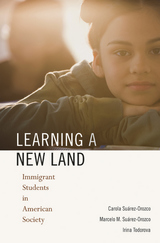
One child in five in America is the child of immigrants, and their numbers increase each year. Very few will return to the country they barely remember. Who are they, and what America do they know?
Based on an extraordinary interdisciplinary study that followed 400 newly arrived children from the Caribbean, China, Central America, and Mexico for five years, this book provides a compelling account of the lives, dreams, and frustrations of these youngest immigrants. Richly told portraits of high and low achievers are packed with unexpected ironies. When they arrive, most children are full of optimism and a respect for education. But poor neighborhoods and dull--often dangerous--schools can corrode hopes. The vast majority learn English--but it is the English of video games and the neighborhood, not that of standardized tests.
For some of these children, those heading off to college, America promises to be a land of dreams. These lucky ones have often benefited from caring mentors, supportive teachers, or savvy parents. For others, the first five years are marked by disappointments, frustrations, and disenchantment. How can we explain their varied academic journeys?
The children of immigrants, here to stay, are the future--and how they adapt will determine the nature of America in the twenty-first century.
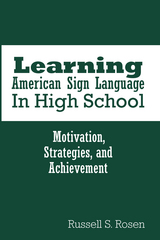
Author Russell S. Rosen begins with the history of ASL as a foreign language in high schools, including debates about the foreign language status of ASL, the situation of deaf and hard of hearing students in classes, and governmental recognition of ASL as a language. Based on his study of five high school ASL programs, he defines the factors that motivate students, including community and culture, and analyzes strategies for promoting language processing and learning. Learning American Sign Language in High School provides strategies for teaching ASL as a second language to students with learning disabilities as well. Its thorough approach ensures the best opportunity for high school students to attain high levels of achievement in learning ASL.
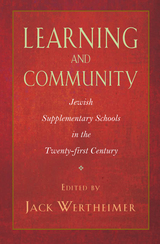

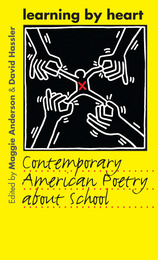
Learning by Heart brings together a unique and diverse collection of poems about the experience of school as seen through the eyes of America's best contemporary poets. These poets capture the educational process not only in the classroom but as it takes place in libraries and hallways, on playing fields and at dances. Alternately joyous and defiant, they demonstrate how it is that young people come to find their place in the world.
Most of the poems in this anthology were written between 1970 and 1995, a period that encompasses both the halcyon years of poets-in-the-schools programs and the primary and secondary school years of many of the poets included. Their poems define school in that most contemporary sense — “with a multitude of voices”—reflecting perspectives from African American, Hispanic American, Asian American, and Native American as well as Anglo American backgrounds, from both public and private schools in rural and urban environments.
Learning by Heart offers a profound and timely statement about schools and learning as well as the role of art in education. Finally, these poems validate that most important lesson: even the most common of experiences is worthy of creative expression.
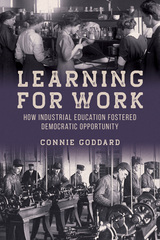
Rooting her account in John Dewey’s ideas, Goddard moves from early nineteenth century supporters of the union of learning and labor to the interconnected histories of CMTS, New Jersey’s Manual Training and Industrial School for Colored Youth, North Dakota’s Normal and Industrial School, and related programs elsewhere. Goddard analyzes the work of movement figures like abolitionist Theodore Weld, educators Calvin Woodward and Booker T. Washington, social critic W.E.B. Du Bois, Dewey himself, and his influential Chicago colleague Ella Flagg Young. The book contrasts ideas about manual training held by advocate Nicholas Murray Butler with those of opponent William Torrey Harris and considers overlooked connections between industrial education and the Arts and Crafts Movement.
An absorbing merger of history and storytelling, Learning for Work looks at the people who shaped industrial education while offering a provocative vision of realizing its potential today.
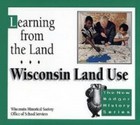
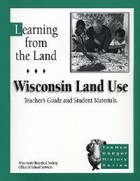
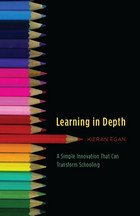
For generations, schools have aimed to introduce students to a broad range of topics through curriculum that ensure that they will at least have some acquaintance with most areas of human knowledge by the time they graduate. Yet such broad knowledge can’t help but be somewhat superficial—and, as Kieran Egan argues, it omits a crucial aspect of true education: deep knowledge.
Real education, Egan explains, consists of both general knowledge and detailed understanding, and in Learning in Depth he outlines an ambitious yet practical plan to incorporate deep knowledge into basic education. Under Egan’s program, students will follow the usual curriculum, but with one crucial addition: beginning with their first days of school and continuing until graduation, they will eachalso study one topic—such as apples, birds, sacred buildings, mollusks,circuses, or stars—in depth. Over the years, with the help and guidance of their supervising teacher, students will expand their understanding of their one topic and build portfolios of knowledge that grow and change along with them. By the time they graduate each student will know as much about his or her topic as almost anyone on earth—and in the process will have learned important, even life-changing lessons about the meaning of expertise, the value of dedication, and the delight of knowing something in depth.
Though Egan’s program may be radical in its effects, it is strikingly simple to implement—as a number of schools have already discovered—and with Learning in Depth as a blueprint, parents, educators, and administrators can instantly begin taking the first steps toward transforming our schools and fundamentally deepening their students’ minds.

Two complementary lectures approach the problems of education from both practical and imaginative viewpoints.
In The Developing Imagination, Northrup Frye argues that “the ultimate purpose of teaching literature is…the transferring of the imaginative habit…from the laboratory of literature to the life of mankind.” Frye’s sympathies are with the pupil as he defends imagination and individualism.
A. R. MacKinnon’s Insistent Tasks in Language Learning suggests that “fragmentation” between primary, secondary, and college education intensifies the divergence of humanities and sciences. He proposes a means of cooperation between all educational levels.
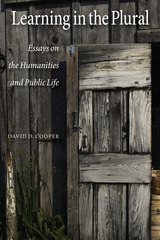
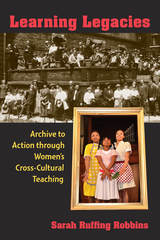


Entrepreneurial creativity, private investment, and competition have been among America's great strengths. Can they be harnessed to improve troubled public schools? Or is private management of public schools at best a gimmick, and at worst an undemocratic sellout?
In the 1990s, some failing school systems turned to private education management organizations to manage their schools. The EMOs promised academic improvement to families and profits to their investors. Wall Street and foundations lavished hundreds of millions of dollars on for-profit and nonprofit start-ups, and thousands of students' educations began to be directed not by school officials, but by private companies.
In Learning on the Job, industry insider Steven Wilson, the founder and CEO of Advantage Schools, looks back on the first tumultuous decade of this social experiment. Digging deep into the academic, financial, logistic, and political records of seven leading EMOs, including his own, he reveals the potential and pitfalls of their business and educational models, and their actual successes in the classrooms and the boardrooms. Have they given their students a better education? Can they succeed as businesses? Can businesses in fact run better public schools than school districts?
With remarkable honesty and fairness on an ideologically charged topic, Wilson describes the follies and wisdom, overreaching and real accomplishment, of the first education entrepreneurs. Acknowledging that they had much to learn about the real-world challenges of running schools, he passionately defends the promise of private involvement in public schooling.
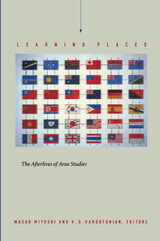
A tremendous amount of money flows—particularly within the sphere of East Asian studies, the contributors claim—from foreign agencies and governments to U.S. universities to underwrite courses on their histories and societies. In the process, this volume argues, such funds have gone beyond support to the wholesale subsidization of students in graduate programs, threatening the very integrity of research agendas. Native authority has been elevated to a position of primacy; Asian-born academics are presumed to be definitive commentators in Asian studies, for example. Area studies, the contributors believe, has outlived the original reason for its construction. The essays in this volume examine particular topics such as the development of cultural studies and hyphenated studies (such as African-American, Asian-American, Mexican-American) in the context of the failure of area studies, the corporatization of the contemporary university, the prehistory of postcolonial discourse, and the problematic impact of unformulated political goals on international activism.
Learning Places points to the necessity, the difficulty, and the possibility in higher education of breaking free from an entrenched Cold War narrative and making the study of a specific area part of the agenda of education generally. The book will appeal to all whose research has a local component, as well as to those interested in the future course of higher education generally.
Contributors. Paul A. Bové, Rey Chow, Bruce Cummings, James A. Fujii, Harry Harootunian, Masao Miyoshi, Tetsuo Najita, Richard H. Okada, Benita Parry, Moss Roberts, Bernard S. Silberman, Stefan Tanaka, Rob Wilson, Sylvia Yanagisako, Mitsuhiro Yoshimoto
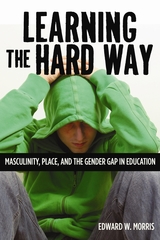
An avalanche of recent newspapers, weekly newsmagazines, scholarly journals, and academic books has helped to spark a heated debate by publishing warnings of a “boy crisis” in which male students at all academic levels have begun falling behind their female peers. In Learning the Hard Way, Edward W. Morris explores and analyzes detailed ethnographic data on this purported gender gap between boys and girls in educational achievement at two low-income high schools—one rural and predominantly white, the other urban and mostly African American. Crucial questions arose from his study of gender at these two schools. Why did boys tend to show less interest in and more defiance toward school? Why did girls significantly outperform boys at both schools? Why did people at the schools still describe boys as especially “smart”?
Morris examines these questions and, in the process, illuminates connections of gender to race, class, and place. This book is not simply about the educational troubles of boys, but the troubled and complex experience of gender in school. It reveals how particular race, class, and geographical experiences shape masculinity and femininity in ways that affect academic performance. His findings add a new perspective to the “gender gap” in achievement.
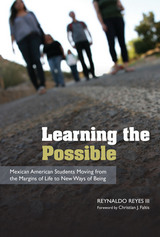
Laura, Christina, Luz, Maria, and Ruben, as the author calls them, had daunting challenges: difficulties with English, extremely low self-confidence, teenage motherhood, conflict between gender roles and personal desires, and a history of gang membership. Focusing on the importance of constructing a new identity as a successful student, Reynaldo Reyes III shares with readers the experiences of these marginalized students. Their stories, coupled with perspectives from instructors, CAMP staff and counselors, and the author’s own observations, illustrate the influence of past schooling, the persistence of culture, and the tensions and challenges inherent in developing a new identity.
This is a study of students who came from the margins and, in a very short time, moved toward the mainstream. In the micro view, it provides extraordinarily useful case studies of a successful intervention program in process. In the larger scope, it is a look at the socially constructed nature of possibility, hope, and success.

Learning Theory in School Situations was first published in 1949. Minnesota Archive Editions uses digital technology to make long-unavailable books once again accessible, and are published unaltered from the original University of Minnesota Press editions.
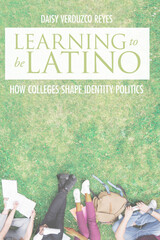
Drawing on extensive ethnographic observations, Reyes shows how college campuses shape much more than students’ academic and occupational trajectories; they mold students’ ideas about inequality and opportunity in America, their identities, and even how they intend to practice politics.
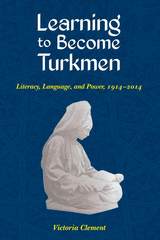
Complemented by extensive fieldwork, Learning to Become Turkmen is the first book in a Western language to draw on Turkmen archives, as it explores how Eurasia has been shaped historically. Revealing particular ways that Central Asians relate to the rest of the world, this study traces how Turkmen consciously used language and pedagogy to position themselves within global communities such as the Russian/Soviet Empire, the Turkic cultural continuum, and the greater Muslim world.
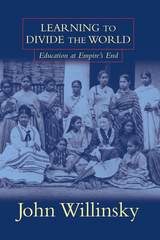
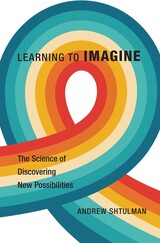
An award-winning cognitive scientist offers a counterintuitive guide to cultivating imagination.
Imagination is commonly thought to be the special province of youth—the natural companion of free play and the unrestrained vistas of childhood. Then come the deadening routines and stifling regimentation of the adult world, dulling our imaginative powers. In fact, Andrew Shtulman argues, the opposite is true. Imagination is not something we inherit at birth, nor does it diminish with age. Instead, imagination grows as we do, through education and reflection.
The science of cognitive development shows that young children are wired to be imitators. When confronted with novel challenges, they struggle to think outside the box, and their creativity is rigidly constrained by what they deem probable, typical, or normal. Of course, children love to “play pretend,” but they are far more likely to simulate real life than to invent fantasy worlds of their own. And they generally prefer the mundane and the tried-and-true to the fanciful or the whimsical.
Children’s imaginations are not yet fully formed because they necessarily lack knowledge, and it is precisely knowledge of what is real that provides a foundation for contemplating what might be possible. The more we know, the farther our imaginations can roam. As Learning to Imagine demonstrates, the key to expanding the imagination is not forgetting what you know but learning something new. By building upon the examples of creative minds across diverse fields, from mathematics to religion, we can consciously develop our capacities for innovation and imagination at any age.

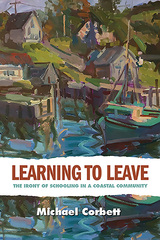
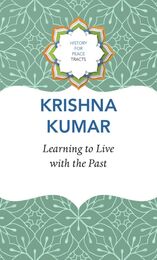
How does education shape political rivalry and hostility? The Partition of the Indian subcontinent in 1947—the violence that followed it, and its living legacy of rival nationalisms—has made a deep and pervasive impact on education in both India and Pakistan. In Learning to Live with the Past, educationist Krishna Kumar dwells on the complex terrain every history teacher has to navigate: how to make the past come alive without running the risk of creating a desire to lose this “pastness.”
Substantiating this question with a wealth of experiences gained from his extensive research on history textbooks, as well as his interactions with students and teachers in both countries, Kumar explores the integral function the discipline of history plays in the project of nation-building. To help children learn to live with the past, Kumar amplifies the need for spaces that create possibilities for inquiries into a “longer” common heritage shared by South Asia without necessarily denying a national narrative or encouraging an urge to undo the past.
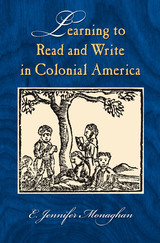
For the most part, religious motives underlay reading instruction in colonial America, while secular motives led to writing instruction. Monaghan illuminates the history of these activities through a series of deeply researched and readable case studies. An Anglican missionary battles mosquitoes and loneliness to teach the New York Mohawks to write in their own tongue. Puritan fathers model scriptural reading for their children as they struggle with bereavement. Boys in writing schools, preparing for careers in counting houses, wield their quill pens in the difficult task of mastering a "good hand." Benjamin Franklin learns how to compose essays with no teacher but himself. Young orphans in Georgia write precocious letters to their benefactor, George Whitefield, while schools in South Carolina teach enslaved black children to read but never to write.
As she tells these stories, Monaghan clears new pathways in the analysis of colonial literacy. She pioneers in exploring the implications of the separation of reading and writing instruction, a topic that still resonates in today's classrooms.
Monaghan argues that major improvements occurred in literacy instruction and acquisition after about 1750, visible in rising rates of signature literacy. Spelling books were widely adopted as they key text for teaching young children to read; prosperity, commercialism, and a parental urge for gentility aided writing instruction, benefiting girls in particular. And a gentler vision of childhood arose, portraying children as more malleable than sinful. It promoted and even commercialized a new kind of children's book designed to amuse instead of convert, laying the groundwork for the "reading revolution" of the new republic.
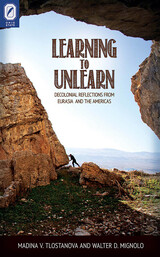
Learning to Unlearn: Decolonial Reflections from Eurasia and the Americas is a complex, multisided rethinking of the epistemic matrix of Western modernity and coloniality from the position of border epistemology. Colonial and imperial differences are the two key concepts to understanding how the logic of coloniality creates ontological and epistemic exteriorities. Being at once an enactment of decolonial thinking and an attempt to define its main grounds, mechanisms, and concepts, the book shifts the politics of knowledge from “studying the other” (culture, society, economy, politics) toward “the thinking other” (the authors).
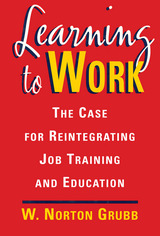
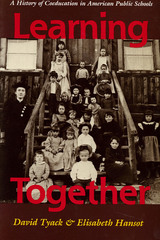
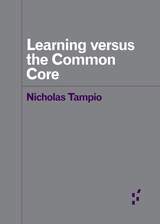
An open challenge to Common Core’s drive for uniformity
Nicholas Tampio watched as his kindergartner’s class shifted from one where teachers, aides, parents, and students worked hard to create a rewarding educational experience to one in which teachers delivered hours-long lectures using packaged lesson plans. Learning versus the Common Core explains how standards-based education reform is transforming nearly every aspect of public education by looking closely at the standards, the agenda of people pushing standards-based reform, and how these fit within a global pattern of education reform. With a nod to the philosophy of John Dewey, Tampio concludes with a vision of what democratic education can look like today—and how people can form rhizomatic alliances across different political and ethical backgrounds to fight the Common Core.
Forerunners: Ideas First
Short books of thought-in-process scholarship, where intense analysis, questioning, and speculation take the lead
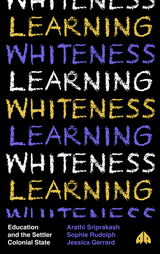
Learning Whiteness examines the material conditions, knowledge politics and complex feelings that create and relay systems of racial domination. Focusing on Australia, the authors demonstrate how whiteness is fundamentally an educational project – taught within education institutions and through public discourse – in active service of the settler colonial state.
To see whiteness as learned is to recognize that it can be confronted. This book invites readers to reckon with past and present politics of education in order to imagine a future thoroughly divested from racism.
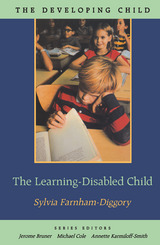
Who is the learning-disabled child? As theories multiply and research accumulates, this pressing question persists, leaving parents and educators and, particularly, students at a loss. The Learning-Disabled Child does much toward providing an answer. A broad-based account of what is currently known and done about learning disabilities, the book gets at the roots of this perplexing problem—in the law, in the school system, and in the child—and offers a new outlook for its treatment.
Since the 1970s, millions of children have been misclassified by public schools as learning-disabled, while many others with true learning disabilities go unidentified and unhelped, as case material presented here makes poignantly clear. Over the same period, research on the nature of learning disabilities, based on samples of misclassified children, has yielded a cloudy and confusing picture. Drawing on her own background in cognitive, developmental, and abnormal psychology, as well as her research into reading and dyslexia, Sylvia Farnham-Diggory cuts through the confusion surrounding learning disabilities. She describes advanced research and clinical data that elucidate handicaps in reading, writing, spelling, drawing, calculation, remembering, and problem-solving. In addition, she outlines a straightforward assessment procedure that would reduce the misclassification of learning-disabled children and, if adopted by schools and private diagnostic services, would save the nation billions of misspent dollars.
Prescriptive as well as descriptive, The Learning-Disabled Child offers invaluable advice to parents seeking the best methods of diagnostic evaluation, and to teachers in search of the most effective means of helping these children. Far-reaching in its scope and firmly practical in its orientation, the book will prove instrumental in the identification, understanding, and treatment of learning disabilities.
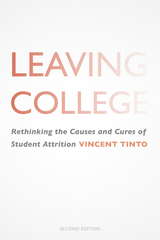
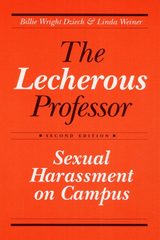
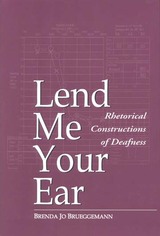
Brueggemann’s assault upon this long-standing rhetorical conceit is both erudite and personal; she writes both as a scholar and as a hard-of-hearing woman. In this broadly based study, she presents a profound analysis and understanding of this rhetorical tradition’s descendent disciplines (e.g., audiology, speech/language pathology) that continue to limit deaf people. Next to this even-handed scholarship, she juxtaposes a volatile emotional counterpoint achieved through interviews with Deaf individuals who have faced rhetorically constructed restrictions, and interludes of her own poetry and memoirs.
The energized structure of Lend Me Your Ear galvanizes new thought on the rhetoric surrounding Deaf people by posing basic questions from a rhetorical context: How is deafness constructed as a disability, pathology, or culture through the institutions of literacy education and science/technology, and how do these constructions fit with those of deaf people themselves? The rhetoric of deafness as pathology is associated with the conventional medical and scientific establishments, and literacy education fosters deafness as disability, both dependent upon the premise that speech drives communication. This kinetic study demands consideration of deafness in terms of the rhetoric of Deaf culture, American Sign Language (ASL), and the political activism of Deaf people. Brueggemann argues strenuously and successfully for a reevaluation of the speech model of rhetoric in light of the singular qualities of ASL poetry, a genre that adds the dimension of space and is not disembodied. Ironically, without a word being spoken or printed, ASL poetry returns to the fading, prized oral tradition of poets such as Homer. The speech imperative in traditional rhetoric also fails to present rhetorical forms for listening, or a rhetoric of silence. These and other break-out concepts introduced in Lend Me Your Ear that will stimulate scholars and students of rhetoric, language, and Deaf studies to return to this intriguing work again and again.
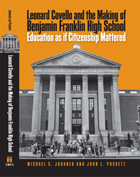

Mock trial—Roman style.
The Lesser Declamations, dating perhaps from the second century AD and attributed to Quintilian, might more accurately be described as emanating from “the school of Quintilian.” The collection—here made available for the first time in translation—represents classroom materials for budding Roman lawyers.
The instructor who composed these specimen speeches for fictitious court cases adds his comments and suggestions concerning presentation and arguing tactics—thereby giving us insight into Roman law and education. A wide range of scenarios is imagined. Some evoke the plots of ancient novels and comedies: pirates, exiles, parents and children in conflict, adulterers, rapists, and wicked stepmothers abound. Other cases deal with such matters as warfare between neighboring cities, smuggling, historical (and quasi-historical) events, tyrants and tyrannicides. Two gems are the speech opposing a proposal to equalize wealth, and the case of a Cynic youth who has forsworn worldly goods but sues his father for cutting off his allowance.
Of the original 388 sample cases in the collection, 145 survive. These are now added to the Loeb Classical Library in a two-volume edition, a fluent translation by D. R. Shackleton Bailey facing an updated Latin text.

Mock trial—Roman style.
The Lesser Declamations, dating perhaps from the second century AD and attributed to Quintilian, might more accurately be described as emanating from “the school of Quintilian.” The collection—here made available for the first time in translation—represents classroom materials for budding Roman lawyers.
The instructor who composed these specimen speeches for fictitious court cases adds his comments and suggestions concerning presentation and arguing tactics—thereby giving us insight into Roman law and education. A wide range of scenarios is imagined. Some evoke the plots of ancient novels and comedies: pirates, exiles, parents and children in conflict, adulterers, rapists, and wicked stepmothers abound. Other cases deal with such matters as warfare between neighboring cities, smuggling, historical (and quasi-historical) events, tyrants and tyrannicides. Two gems are the speech opposing a proposal to equalize wealth, and the case of a Cynic youth who has forsworn worldly goods but sues his father for cutting off his allowance.
Of the original 388 sample cases in the collection, 145 survive. These are now added to the Loeb Classical Library in a two-volume edition, a fluent translation by D. R. Shackleton Bailey facing an updated Latin text.
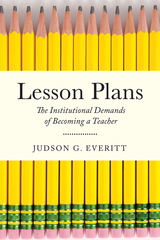
In Lesson Plans, Judson G. Everitt takes readers into the everyday worlds of teacher training, and reveals the complexities and dilemmas teacher candidates confront as they learn how to perform a job that many people assume anybody can do. Using rich qualitative data, Everitt analyzes how people make sense of their prospective jobs as teachers, and how their introduction to this profession is shaped by the institutionalized rules and practices of higher education, K-12 education, and gender. Trained to constantly adapt to various contingencies that routinely arise in schools and classrooms, teacher candidates learn that they must continually try to reconcile the competing expectations of their jobs to meet students’ needs in an era of accountability. Lesson Plans reveals how institutions shape the ways we produce teachers, and how new teachers make sense of the multiple and complicated demands they face in their efforts to educate students.

Lessons and Legacies II focuses on matters unique to Holocaust education. Consisting of selected papers delivered at the second Lessons and Legacies conference in 1992, the volume is organized in three sections: Issues, Resources, and Applications. Taken individually, the essays speak directly to specific concerns surrounding Holocaust education: the growing maturity of the Holocaust as a field of study; the difficult issue of explaining the perpetrators' behavior; the process of decision-making within Jewish communities during the Holocaust; issues of gender and family; the scope and content of survivor literature; and the structure of courses and the implications of being an educator in the field. Taken as a whole, the volume speaks to the reciprocal and mutually reinforcing relationship between teaching and scholarship in this important field.
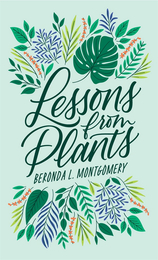
An exploration of how plant behavior and adaptation offer valuable insights for human thriving.
We know that plants are important. They maintain the atmosphere by absorbing carbon dioxide and producing oxygen. They nourish other living organisms and supply psychological benefits to humans as well, improving our moods and beautifying the landscape around us. But plants don’t just passively provide. They also take action.
Beronda L. Montgomery explores the vigorous, creative lives of organisms often treated as static and predictable. In fact, plants are masters of adaptation. They “know” what and who they are, and they use this knowledge to make a way in the world. Plants experience a kind of sensation that does not require eyes or ears. They distinguish kin, friend, and foe, and they are able to respond to ecological competition despite lacking the capacity of fight-or-flight. Plants are even capable of transformative behaviors that allow them to maximize their chances of survival in a dynamic and sometimes unfriendly environment.
Lessons from Plants enters into the depth of botanic experience and shows how we might improve human society by better appreciating not just what plants give us but also how they achieve their own purposes. What would it mean to learn from these organisms, to become more aware of our environments and to adapt to our own worlds by calling on perception and awareness? Montgomery’s meditative study puts before us a question with the power to reframe the way we live: What would a plant do?

Around 10,000 tax dollars will put a child through many public schools for a year. About 10,000 private dollars will put him through prep school. Why, then, is one system troubled and the other thriving, one vilified and the other celebrated? In this book, a renowned historian of education searches out the lessons that private schooling might offer public education as cries for school reform grow louder.
Lessons from Privilege explores a tradition shaped by experience and common sense, and guided by principles that encourage community, personal relationships, and high academic standards. These "basic" values make a profound difference in a time when popular culture, which mocks intellectual curiosity and celebrates mental passivity, competes so successfully for students' attention.
Arthur Powell uses the experience of private education to put the whole schooling enterprise in fresh perspective. He shows how the sense of schools as special communities can help instill passion and commitment in teachers, administrators, and students alike--and how passion and commitment are absolutely necessary for educational success. The power of economic resources, invested fully in schools, also becomes pointedly clear here, as does the value of incentives for teachers and students.
Though the concerns this book brings into focus--for decent character and academic literacy--may never be trendy or easily applied, Lessons from Privilege presents sensible, powerful, and profitable ideas for enhancing the humanity and dignity of education in America.

Drawing on compelling picture books that can be used to directly support the AASL National School Library Standards for Learners, School Librarians, and School Libraries, this ready-to-go toolkit of lessons, worksheets, anchor charts, assessments, and rubrics is specifically designed to build learner competencies while examining big ideas inspired by picture books. An invaluable timesaver, this resource provides
- 21 lesson units that cover the six Shared Foundations, each utilizing a formatted template that’s easy to follow and incorporates the four Domains (Think, Create, Share, Grow);
- a picture book synopsis for each unit, followed by lesson objectives, essential questions, materials, and duration;
- worksheets, anchor charts, and exit slips tailored for each picture book and lesson;
- “Quick Tips” that offer helpful ideas and suggestions to consider during the lesson; and
- an appendix that includes rubrics to facilitate assessment in all six foundations.

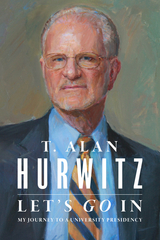
Additional images, videos, and supplemental readings are available at the Gallaudet University Press/Manifold online platform.

Let’s Talk about Critique examines how critique in art education has evolved, how it falls short, and what else it could be. Elissa Armstrong and Mariah Doren contextualize current practices by discussing the history of critique, the field of education, and the characteristics of today’s students. Then they offer suggestions for ways to have more open, inclusive, and dynamic classroom conversations about art and design. The core of the book consists of critique format descriptions, written by experienced educators, that provide a wide variety of thoughtful approaches that can be readily adapted and used.
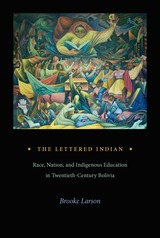
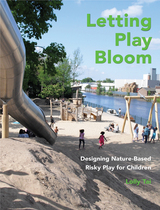
Children love to play in risky—often misunderstood to mean unsafe—ways. It is often how they learn. Research shows that activities like climbing on trees and boulders, hiking in nature, and playing in a creek are excellent ways for kids to develop their creativity and their senses, because playing outdoors evokes different sights, sounds, smells, and textures.
Letting Play Bloom analyzes five outstanding case studies of children’s nature-based risky play spaces—the Slide Hill at Governors Island in New York, the Berkeley (CA) Adventure Playground, and Wildwoods at Fernbank Museum in Atlanta, as well as sites in the Netherlands and Australia. Author Lolly Tai provides detailed explanations of their background and design, and what visitors can experience at each site.
She also outlines the six categories of risky—not hazardous—play, which involve great heights, rapid speeds, dangerous tools, dangerous elements, rough-and-tumble play, and wandering or getting lost. These activities allow children to explore and challenge themselves (testing their limits) to foster greater self-worth while also learning valuable risk-management skills such as dealing with fear-inducing situations.
Filled with more than 200 photographs, Letting Play Bloom advocates for a thoughtful landscape design process that incorporates the specific considerations children need to fully experience the thrill that comes from playing in nature.
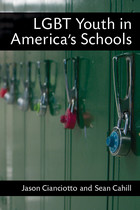
Jason Cianciotto and Sean Cahill, experts on lesbian, gay, bisexual, and transgender public policy advocacy, combine an accessible review of social science research with analyses of school practices and local, state, and federal laws that affect LGBT students. In addition, portraits of LGBT youth and their experiences with discrimination at school bring human faces to the issues the authors discuss.
This is an essential guide for teachers, school administrators, guidance counselors, and social workers interacting with students on a daily basis; school board members and officials determining school policy; nonprofit advocates and providers of social services to youth; and academic scholars, graduate students, and researchers training the next generation of school administrators and informing future policy and practice.
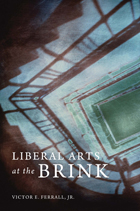
Liberal arts colleges represent a tiny portion of the higher education market—no more than 2 percent of enrollees. Yet they produce a stunningly large percentage of America’s leaders in virtually every field of endeavor. The educational experience they offer—small classes led by professors devoted to teaching and mentoring, in a community dedicated to learning—has been a uniquely American higher education ideal.
Liberal Arts at the Brink is a wake-up call for everyone who values liberal arts education. A former college president trained in law and economics, Ferrall shows how a spiraling demand for career-related education has pressured liberal arts colleges to become vocational, distorting their mission and core values. The relentless competition among them to attract the “best” students has driven down tuition revenues while driving up operating expenses to levels the colleges cannot cover. The weakest are being forced to sell out to vocational for-profit universities or close their doors. The handful of wealthy elite colleges risk becoming mere dispensers of employment and professional school credentials. The rest face the prospect of moving away from liberal arts and toward vocational education in order to survive.
Writing in a personable, witty style, Ferrall tackles the host of threats and challenges liberal arts colleges now confront. Despite these daunting realities, he makes a spirited case for the unique benefits of the education they offer—to students and the nation. He urges liberal arts colleges to stop going it alone and instead band together to promote their mission and ensure their future.
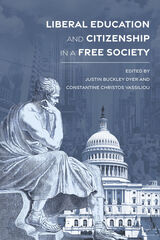
With Liberal Education and Citizenship in a Free Society, a collection of 19 original essays, editors Justin Dyer and Constantine Vassiliou present the work of a diverse group of scholars to assess the value of a liberal arts education in the face of market, technological, cultural, and political forces shaping higher learning today.
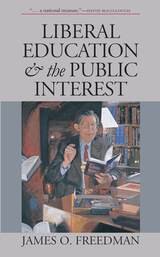
In 1996 James Freedman published Idealism and Liberal Education, which discussed the ideals that shaped his life as an intellectual, a law professor, and a college and university president. In this new collection of essays, he convincingly explores his firm belief that a liberal education is the “surest instrument yet devised for developing those civilizing qualities of mind and character that enable men and women to lead satisfying lives and to make significant contributions to a democratic society.”
Freedman concentrates directly upon the problems facing university presidents and all university administrators. A passionate and beautifully written argument for the benefits of a liberal education, this book
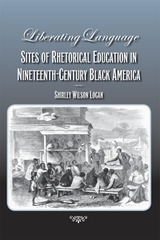
Liberating Language identifies experiences of nineteenth-century African Americans—categorized as sites of rhetorical education—that provided opportunities to develop effective communication and critical text-interpretation skills. Author Shirley Wilson Logan considers how nontraditional sites, which seldom involved formal training in rhetorical instruction, proved to be effective resources for African American advancement.
Logan traces the ways that African Americans learned lessons in rhetoric through language-based activities associated with black survival in nineteenth-century America, such as working in political organizations, reading and publishing newspapers, maintaining diaries, and participating in literary societies. According to Logan, rhetorical training was manifested through places of worship and military camps, self-education in oratory and elocution, literary societies, and the black press. She draws on the experiences of various black rhetors of the era, such as
Frederick Douglass, Frances Harper, Fanny Coppin, Charles Chesnutt, Ida B. Wells, and the lesser-known Oberlin-educated Mary Virginia Montgomery, Virginia slave preacher "Uncle Jack," and former slave "Mrs. Lee."
Liberating Language addresses free-floating literacy, a term coined by scholar and writer Ralph Ellison, which captures the many settings where literacy and rhetorical skills were acquired and developed, including slave missions, religious gatherings, war camps, and even cigar factories. In Civil War camp- sites, for instance, black soldiers learned to read and write, corresponded with the editors of black newspapers, edited their own camp-based papers, and formed literary associations.
Liberating Language outlines nontraditional means of acquiring rhetorical skills and demonstrates how African Americans, faced with the lingering consequences of enslavement and continuing oppression, acquired rhetorical competence during the late eighteenth century and throughout the nineteenth century.
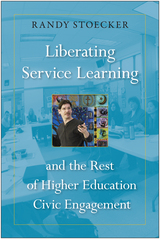
Randy Stoecker has been “practicing” forms of community-engaged scholarship, including service learning, for thirty years now, and he readily admits, “Practice does not make perfect.” In his highly personal critique, Liberating Service Learning and the Rest of Higher Education Civic Engagement, the author worries about the contradictions, unrealized potential, and unrecognized urgency of the causes as well as the risks and rewards of this work.
Here, Stoecker questions the prioritization and theoretical/philosophical underpinnings of the core concepts of service learning: 1. learning, 2. service, 3. community, and 4. change. By “liberating” service learning, he suggests reversing the prioritization of the concepts, starting with change, then community, then service, and then learning. In doing so, he clarifies the benefits and purpose of this work, arguing that it will create greater pedagogical and community impact.
Liberating Service Learning and the Rest of Higher Education Civic Engagement challenges—and hopefully will change—our thinking about higher education community engagement.
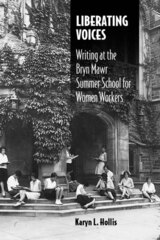
During the 1920s and 1930s at the Bryn Mawr Summer School for Women Workers, working-class women were educated in the liberal arts and instructed in writing to assume more powerful roles in the industrial workplace. In Liberating Voices: Writing at the Bryn Mawr Summer School for Women Workers, Karyn L. Hollis tells the remarkable story of how this multiclass, multiethnic American institution rooted in composition pedagogy, literary history, and leftist thought emerged from the broad social, economic, and ideological trends of the era. The summer school curriculum, Hollis shows, enhanced the individual and collective self-confidence of the 1,800 women who studied there between 1921 and 1938.
Drawing heavily on the women’s writings—including autobiography, poetry, labor drama, humor, and economic reporting—Liberating Voices adds significantly to the small oeuvre of published writing by working-class women, who were, in this case, mostly nontraditional students, immigrants, and minorities. Outlining a materialist pedagogy that centers on the women’s daily economic struggles as well as their family and community experiences, Hollis reveals the tensions that stemmed from differences in race, ethnicity, class, and religion. She also shows how the students exploited cultural scripts and drew strength from their diversity, eventually insisting on a democratic sharing of power with faculty and administrators at the Summer School.
Hollis provides a thorough ethnography of the Summer School with respect to its place in the social and political history of the 1920s and 1930s, and then situates the school’s pedagogy within the history of American education and composition instruction. Concepts from literary criticism and composition theory provide the framework for an analysis of the working women’s autobiographical writing, revealing how the narrative voice of their prose grew from weak and individualized to empowered and collective as the women described their families, childhood, work, unions, and education over time. The volume is complemented by sixteen illustrations.
Additional analysis of the women’s poetry points to their skill as both producers and consumers of literature. The common theme of body versus a powerful machine in the workplace bears witness to the industrial exploitation the women endured. Taking up postmodern questions of agency and voice, Hollis argues that the women used a variety of cultural texts to construct discourses that reflected their needs and desires. Liberating Voices not only provides a previously untold chapter in the history of American worker education, it also showcases a liberating pedagogy that has salient implications for contemporary classrooms.

Perhaps the most exciting aspect of the Harvard University Library today is that in this largest university library in the world primary emphasis is placed upon a regard for the individual which extends alike to staff, faculty, students, and general users. As director of the Library, Paul Buck was responsible for this attitude. This book reflects his view that as the center of university education and research a library owes a responsibility both to the people who use libraries and to those who operate them. Personal consideration must be united with the mechanization and automation that is essential in developing a modern library's collections, circulation, and special services.
Here are addresses, articles, and reports in which Mr. Buck interprets the Harvard Library to its own staff, to the academic community, and to the general public. For the general reader who wants to know something of the nature and significance of university libraries, the author presents a historical view as well as an interesting picture of what the largest library of its kind is doing today.
The collection begins with a talk given at Monticello in 1954 in which Mr. Buck announced his university library credo, emphasizing the importance of the university library, its personnel, and its services to the community. This credo he restates at the end of this volume. Throughout the book are speeches bearing on the author's conception of libraries for teaching and research as well as a description of the administrative program at Harvard that he based on this conception.
He analyzes problems involved in recruiting, training, and retaining a quality staff of professional librarians. In one article he deals with the new personnel program adopted by the Harvard Library in 1958. In another he is concerned with the remarkably successful plan for recruiting "library interns" that is now in operation at Harvard. Still another paper discusses a landmark of his administration, the installation of a mechanized circulation system.
Included here also are addresses reflecting Mr. Buck's broad historical perspective. He deals with the long-range future of libraries generally and with the prospects of American universities. He is concerned with relations between historians, librarians, and businessmen. In a short paper he touches on another landmark of his administration--the first steps taken in planning the John F. Kennedy library.

With textbook readers and digital downloads proliferating, it is easy to imagine a time when printed books will vanish. Such forecasts miss the mark, argue Jeffrey Schnapp and Matthew Battles. Future bookshelves will not be wholly virtual, and libraries will thrive—although in a variety of new social, cultural, and architectural forms. Schnapp and Battles combine deep study of the library’s history with a record of institutional and technical innovation at metaLAB, a research group at the forefront of the digital humanities. They gather these currents in The Library Beyond the Book, exploring what libraries have been in the past to speculate on what they will become: hybrid places that intermingle books and ebooks, analog and digital formats, paper and pixels.
Libraries have always been mix-and-match spaces, and remix is their most plausible future scenario. Speculative and provocative, The Library Beyond the Book explains book culture for a world where the physical and the virtual blend with ever increasing intimacy.
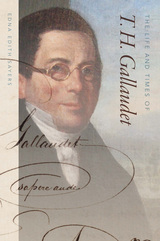
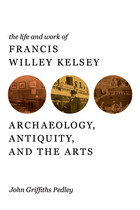
President of the Archaeological Institute of America, professor at the University of Michigan from 1889 to 1927, and president of the American Philological Association, Francis Kelsey was crucially involved in the founding or growth of major educational institutions. He came to maturity in a period of great technological change in communications, transportation, and manufacturing. Kelsey took full advantage of such innovations in his ceaseless drive to promote education for all, to further the expansion of knowledge, and to champion the benefits of the study of antiquity.
A vigorous traveler around the United States, Europe, and the Mediterranean, Kelsey strongly believed in the value of personally viewing sites ancient and modern and collecting artifacts that could be used by the new museums and universities that were springing up in the United States. This collecting habit put him in touch with major financiers of the day, including Charles Freer, Andrew Carnegie, and J. P. Morgan, as he sought their help for important projects.
Drawing heavily on Kelsey's daily diaries now held at the University of Michigan's Bentley Historical Library, John Griffiths Pedley gives us a biography that records the wide-ranging activities of a gifted and energetic scholar whose achievements mirrored the creative and contributive innovations of his contemporary Americans.
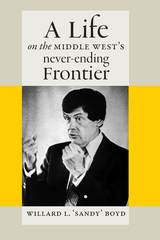
His memoir, interspersed with personal wisdom gleaned over more than six decades of service and leadership, encapsulates Sandy’s shrewd yet optimistic view of the public university as an institution. At every stage in his life—in the U.S. Navy during World War II, while practicing law or teaching, and in leadership positions at Chicago’s Field Museum and the University of Iowa— Sandy relied on his principles of open disclosure, inclusiveness, and respect for differences to guide him on issues that matter.
This chronicle of Sandy’s experiences throughout his life shows us the evolution both of the University of Iowa and of the nation writ large. More importantly, this book gives us a lens through which to examine our present situation, whether debating free speech on campus, the role of the arts and humanities in civil society, or the importance of funding for educational and cultural institutions.
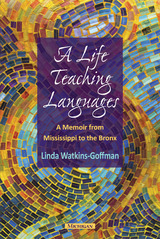
In this memoir of an educator, Watkins-Goffman offers insights she has gained from her years of traveling, teaching, and writing and shares how her experiences have shaped her teaching philosophy. According to Watkins-Goffman, teachers must communicate authentically to teach effectively and, to accomplish this, they must connect their own experiences in some way with those of their students. The stories she tells are sure to resonate with pre-service and practicing teachers alike. Her reflections about her own experiences will be useful to readers who plan to become ESL educators, or those who simply seek inspiration about teaching.
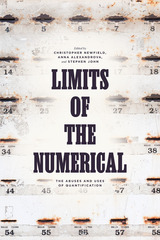
Numbers are both controlling and fragile. They drive public policy, figuring into everything from college rankings to vaccine efficacy rates. At the same time, they are frequent objects of obfuscation, manipulation, or outright denial. This timely collection by a diverse group of humanists and social scientists challenges undue reverence or skepticism toward quantification and offers new ideas about how to harmonize quantitative with qualitative forms of knowledge.
Limits of the Numerical focuses on quantification in several contexts: climate change; university teaching and research; and health, medicine, and well-being more broadly. This volume shows the many ways that qualitative and quantitative approaches can productively interact—how the limits of the numerical can be overcome through equitable partnerships with historical, institutional, and philosophical analysis. The authors show that we can use numbers to hold the powerful to account, but only when those numbers are themselves democratically accountable.

Lincoln Hall at the University of Illinois, named to commemorate the centennial of Abraham Lincoln's birth, has long been a familiar landmark on the Urbana-Champaign campus and the home for undergraduate and graduate work in the liberal arts and communication. Funded by the Illinois State Legislature in 1909, the building was dedicated in 1913 on Lincoln's birthday, February 12. In addition to its function as space for offices, classrooms, and departmental libraries, Lincoln Hall was commissioned, designed, and built to convey "the wisdom and patriotism of the democracy of learning."
That spirit of freedom and equality in education was manifest in Lincoln Hall's artistic design, which features terra cotta panels depicting Lincoln's life, quotations from his writings, and portraits of prominent figures of his day. At the outset of the building's conception, Evarts B. Greene, professor of history and dean of the College of Literature and Arts, provided detailed information about Lincoln that defined the building's artistic program. Wishing to retain the dignified simplicity of the overall design, he conferred with W. Carbys Zimmerman, the State Architect, about the nature and placement of the panels and other ornamental details that have become key features of the building's design.
Commemorating the bicentennial of Lincoln's birth, this magisterial volume chronicles the history of Lincoln Hall from its conception to its expansion and its present role on the campus. John Hoffmann identifies each of the building's historical panels and the portraits of Lincoln's contemporaries. Lavishly illustrated to show how much care was taken with the details of the design, this book provides a lasting historical record of the building's century-long place at the University of Illinois.
Supported by the Office of the Chancellor of the University of Illinois at Urbana-Champaign
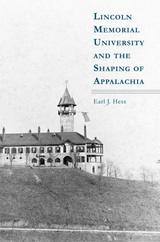
Located near Cumberland Gap in the rugged hills of East Tennessee, Lincoln Memorial University (LMU) was founded in 1897 to help disadvantaged Appalachian youth and reward the descendents of Union loyalists in the region. Its founder was former Union General Oliver Otis Howard, a personal friend of Abraham Lincoln, who made it his mission to sustain an institution of higher learning in the mountain South that would honor the memory of the Civil War president.
In Lincoln Memorial University and the Shaping of Appalachia, LMU Professor Earl J. Hess presents a highly readable and compelling history of the school. Yet the book is much more than a chronology of past events. The author uses the institution’s history to look at wider issues in Appalachian scholarship, including race and the modernization of educational methods in Appalachia. LMU offered a work-learn program to help students pay their way, imparting the value of self-help, and it was hit by a massive student strike that nearly wrecked the institution in 1930. LMU has played an important role in shaping what higher learning could be for young people in its region of southern Appalachia.
The volume examines the involvement of O. O. Howard and his unflagging efforts to establish and fund the school; the influence of early twentieth-century industrial capitalism—
Andrew Carnegie and John D. Rockefeller were benefactors—on Appalachia and LMU in particular; and the turn-of-the-century cult of Lincoln that made the university a major repository of Lincolniana.
Meticulously researched and richly illustrated, Lincoln Memorial University and the Shaping of Appalachia is a fresh look at the creation, contributions, and enduring legacies of LMU. Students, alumni, and friends of the university, as well as scholars of Appalachian culture and East Tennessee history, will find this book both enlightening and entertaining.
Earl J. Hess holds the Stewart W. McClelland Chair in History at Lincoln Memorial University. He is the author of more than a dozen books on Civil War military history, the latest of which is Into the Crater: The Mine Attack at Petersburg.
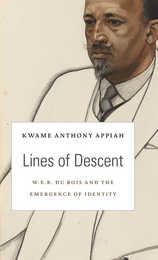
W. E. B. Du Bois never felt so at home as when he was a student at the University of Berlin. But Du Bois was also American to his core, scarred but not crippled by the racial humiliations of his homeland. In Lines of Descent, Kwame Anthony Appiah traces the twin lineages of Du Bois’ American experience and German apprenticeship, showing how they shaped the great African-American scholar’s ideas of race and social identity.
At Harvard, Du Bois studied with such luminaries as William James and George Santayana, scholars whose contributions were largely intellectual. But arriving in Berlin in 1892, Du Bois came under the tutelage of academics who were also public men. The economist Adolf Wagner had been an advisor to Otto von Bismarck. Heinrich von Treitschke, the historian, served in the Reichstag, and the economist Gustav von Schmoller was a member of the Prussian state council. These scholars united the rigorous study of history with political activism and represented a model of real-world engagement that would strongly influence Du Bois in the years to come.
With its romantic notions of human brotherhood and self-realization, German culture held a potent allure for Du Bois. Germany, he said, was the first place white people had treated him as an equal. But the prevalence of anti-Semitism allowed Du Bois no illusions that the Kaiserreich was free of racism. His challenge, says Appiah, was to take the best of German intellectual life without its parochialism—to steal the fire without getting burned.
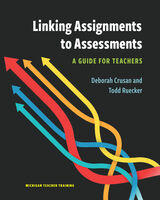
The book shares foundational information on the importance of assessment literacy and on how language acquisition, student backgrounds, and language standards need to be considered. Linking Assignments to Assessments offers step-by-step instructions on creating effective assessments for listening and reading, speaking and writing, grammar and vocabulary. Teachers are provided context for understanding standardized assessments and strategies to advocate for and prepare English learners in high-stakes assessment contexts. Each chapter includes activities, discussion questions, and strategies for developing an assessment philosophy to help educators link their theory and practice.
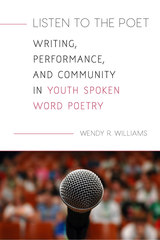
Listen to the Poet investigates two Arizona spoken word poetry groups—a community group and a high school club—that are both part of the same youth organization. Exploring the writing lives and poetry of several members, Wendy R. Williams takes readers inside a writing workshop and poetry slam and reveals that schools have much to learn about writing, performance, community, and authorship from groups like these and from youth writers themselves.
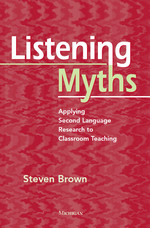
This volume was conceived as a "best practices" resource for teachers of ESL listening courses in the way that Vocabulary Myths by Keith S. Folse (and Writing Myths by Joy Reid) is one for reading and vocabulary teachers. It was written to help ensure that teachers of listening are not perpetuating the myths of teaching listening.
Both the research and pedagogy in this book are based on the newest research in the field of second language acquisition. Steven Brown is the author of the Active Listening textbook series and is a teacher trainer.
The myths debunked in this book are:
§ Listening is the same as reading.
§ Listening is passive.
§ Listening equals comprehension.
§ Because L1 language ability is effortlessly acquired, L2 listening ability is too.
§ Listening means listening to conversations.
§ Listening is an individual, inside-the-head process.
§ Students should only listen to authentic materials.
§ Listening can’t be taught.
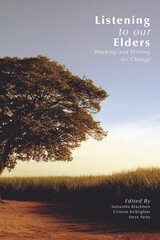
In 2011, the National Council of Teachers of English (NCTE) turned one hundred years old. But our profession is endlessly beginning, constantly transforming itself and its purpose as new voices and identities claim their rights in our classrooms and in our country. The recognition of such claims, however, does not occur without a struggle, without collective work.
Listening to our Elders attempts to capture the history of those collective moments where teachers across grade levels and institutions of higher education organized to insure that the voices, heritages, and traditions of their students and colleagues were recognized within our professional organizations as a vital part of our classrooms and our discipline. In doing so, Listening to Our Elders demonstrates this recognition was not always easily given. Instead, whether the issue was race, sexuality, class, or disability, committed activist organizations have often had to push against the existing limits of our field and its organizations to insure a broader sense of common responsibility and humanity was recognized.
Listening to Our Elders features interviews with Malea Powell (Native American Caucus), Joyce Rain Anderson (Native American Caucus), Jeffery Paul Chan (Asian/Asian American), James Hill (Black Caucus), James Dolmage (Committee for Disability Issue in College Composition), Geneva Smitherman (Language Policy Commitee), Carlota Cárdenas de Dwyer (Latino/a Caucus), Victor Villanueva (Latino/a Caucus), Louise Dunlap (Progressive Caucus), Karen Hollis (Progressive Caucus), Louie Crew (Queer Caucus), William Thelin (Working Class Culture and Pedagogy SIG), Bill Macauley (Working Class Culture and Pedagogy SIG).
READERS
Browse our collection.
PUBLISHERS
See BiblioVault's publisher services.
STUDENT SERVICES
Files for college accessibility offices.
UChicago Accessibility Resources
home | accessibility | search | about | contact us
BiblioVault ® 2001 - 2024
The University of Chicago Press









